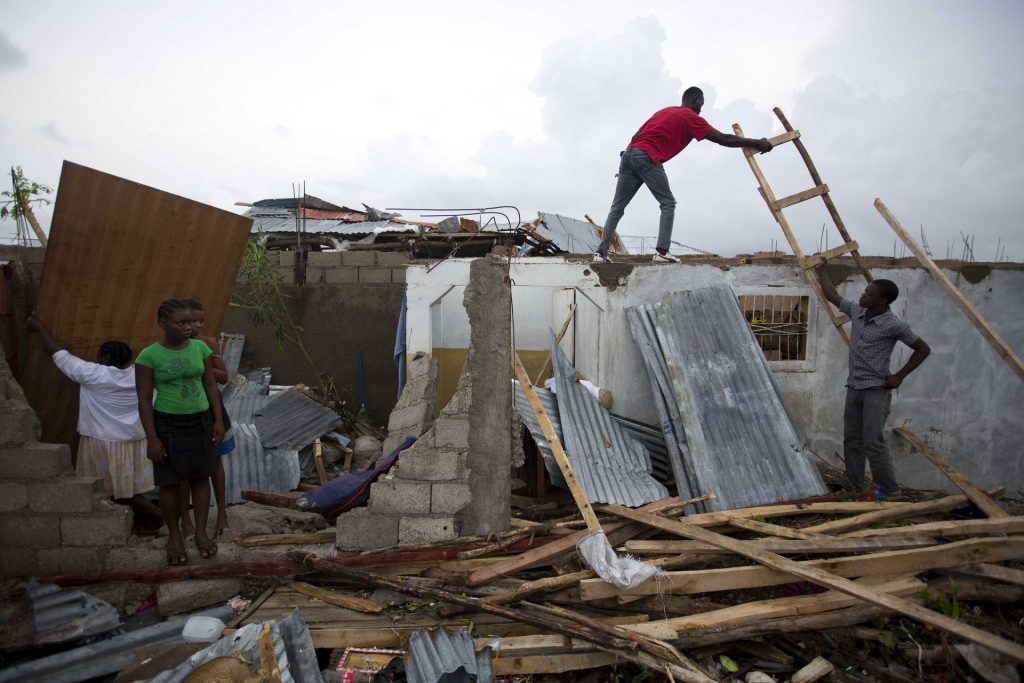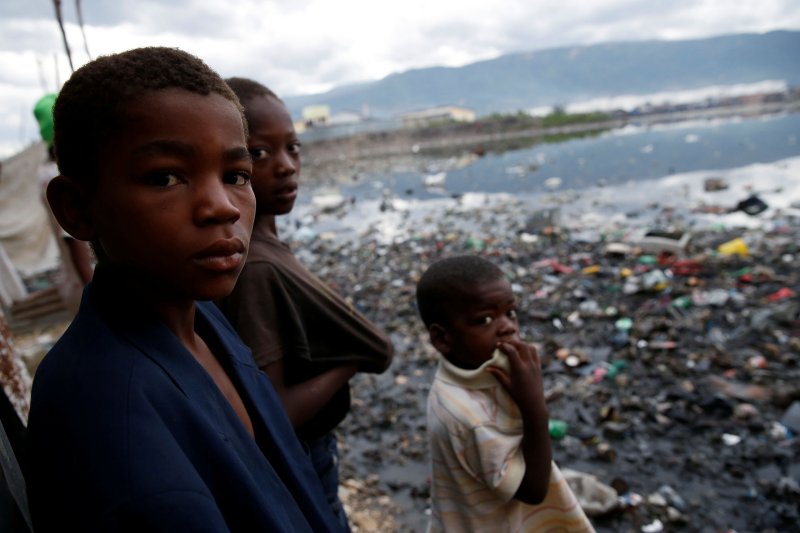AP photo
By
Tom Arms
Haiti is a land of extremes. Unfortunately they are all the worst kind. It is extremely poor, extremely corrupt, extremely violent and now—extremely devastated.
Category 4 Hurricane Matthew has swept through the island, dropped up to three feet of rain on mountains bereft of soil-hugging trees and blown away whole shanty towns that wouldn’t have stood up to a weak puff from the big bad wolf, let alone 145 mile per hour winds.
Untold thousands are now homeless and facing the prospect of widespread cholera and dysentery as drinking water disappears and raw sewage floats through the streets.
Conspicuous by their absence in the aftermath of Hurricane Matthew are Haitian police or troops. Or, if they are present, they are using their authority and weapons to loot rather than protect.
This weekend there was supposed to be a presidential election. Forget that. The elections were going to be a re-run of a poll a year ago which failed to find a clear winner. Since then the island has been the scene of a political farce with election after election being postponed because of riots, corruption and charges of fraud. Now President Michel Martelly can legitimately use the Act of God excuse to cling to power a bit longer.
Photo – Dieu nalio Cherry/AP
It would be easy to dismiss Haiti as not our problem. The problem is. It is our problem. Up to a million Haitians have either legally or illegally entered the United States. Another 200,000 are in Canada, a million in the Dominican Republic and a further million plus are scattered about in the Bahamas, Brazil, Mexico, France, Belgium….
On top of that, the economy has become dependent on immigration and developed a culture which supports it and is supported by it. Young Haitian men father their children, then leave the island and remit money back to support the families they left behind. A quarter of Haiti’s GDP is based on foreign remittances. Half of the population is under the age of 25. The median age is 22.
Haiti is a pressure cooker which regularly discards its human contents and every now and then blows up to send a five-course meal to American shores. The last such occasion was the January 2010 earthquake when an estimated 160,000 died and 250,000 homes collapsed. The US government responded with massive aid and a temporary permit scheme which lifted restrictions on Haitian refugees. A similar response is expected in the wake of Hurricane Matthew.
That has to be the right short-term response. It cannot be the long-term answer to the problem of Haiti or the wider problem of migration. Neither can an inhumane block on immigration solve the problem. A mere wall will not do the trick in Mexico as hundreds of thousands of Haitians have proven by crossing 615 miles of shark-infested seas. The human instinct for survival is too strong.
Photo – Carlos Garcia Rawlins/Reuters
It is cruel to deny refuge to people who have lost their homes, their families, and their livelihoods. It is inhumane to refuse to help fellow humans who are fleeing natural disaster, war or endemic violence. It is beyond all acceptable standards of behaviour to refuse to allow boatloads of refugees to land and become the accomplices to the drowning of thousands of desperate people.
The refugee problem is increasing and they are not just coming from Haiti. That half of an island is little more than a large piece of flotsam in a sea of humanity threatening to engulf the Western world.
The answer lies in removing the conditions that cause immigration. We need to share our wealth. Not by doling out aid money, but by investing cash in the countries where the immigrant floods start. Money needs to be invested in Haiti, Mexico, North Africa, Sub-Saharan Africa and the Middle East to build industries and create jobs and opportunities so that the need to leave to survive is eliminated.
Too often the response to the problems of the developing world are dismissed with the words: “Well, we have to solve our own problems first.”
The problems of the developing world are our problems as much as theirs. If they are not confronted and dealt with in the countries of origin then they will become problems on American soil.
Tom Arms is a broadcaster and columnist focused on world affairs. His regular wold affairs podcast can be heard at www.lookaheadnews.com. He is also available for lectures and speaking engagements.
LookAhead Radio World Report for week commencing 10 October:





No Comments Yet!
You can be first to comment this post!